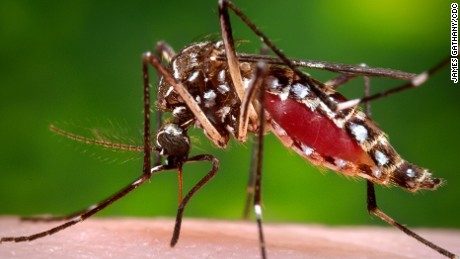
Another virus you’ve probably never heard of – Zika virus – is making health news and causing another health scare. An outbreak of the virus, which started in Brazil in May 2015 now involves several countries in the South/Central American and Caribbean region. Cases have also been reported in the U.S. in Hawaii, Florida and New York, all of whom are travellers from affected countries.
This outbreak is significant because it has brought to light the possibility that Zika virus may be dangerous to pregnant women and their babies. Health officials, including the WHO and Centers for Disease Control and Prevention (CDC), have recognized what appears to be a link between this recent outbreak of Zika and an increase in neurological problems and a condition called microcephaly in which babies are born with usually small heads.
What is Zika virus?
Zika virus was first discovered in a monkey in Uganda in 1947, and is named after the Zika forest where it was discovered. Similar to the viruses that cause yellow fever and Dengue fever, it is native mainly to tropical Africa, with outbreaks in Southeast Asia and the Pacific Islands. The Brazil outbreak is the first time the virus has been documented in the Americas.
Studies conducted in Nigeria in 1968 and during 1971–1975 showed that up to 40% of the persons tested had evidence of previous Zika virus infection. In the studies, children as young as 10 months old and up to 10 years of age who had fever, tested positive for Zika virus.
How Does Zika Spread?
It is spread by mosquitos, which carry the Zika virus from person to person in a manner similar to malaria transmission. The Aedes mosquito (tiger mosquito), which carries the virus, bites during the daytime and is different from the mosquito, which carries malaria.
If a pregnant woman is infected, the Zika virus can be transmitted to her baby while she is pregnant or around the time of birth. The possibility of transmission from person to person through infected blood or sexual contact is being investigated.
What are the symptoms?
The illness is usually mild with symptoms lasting from 2 days to a week, followed by full recovery. Only 1 in 5 persons infected develops symptoms and severe disease requiring hospitalization is rare. Symptoms include fever, rash, joint pain, and conjunctivitis (red eyes). Some people also may experience headache, muscle pain or vomiting.
The possible link to birth defects, including microcephaly has health experts concerned. It is unclear however if the increase in microcephaly cases is directly caused by Zika or if other factors are involved. Studies are being done to learn more.
The other concern is the development of Gullain-Barre syndrome in some patients, a neurological complication in which the body’s immune system attacks its own nervous system causing weakness and sometimes paralysis.
Travel Warning for Pregnant Women
Because of the risks, the CDC recommends that pregnant women avoid traveling to areas where Zika virus has been seen. Health officials have even gone as far as recommending that women in the affected countries in South/Central American and Caribbean avoid pregnancy during this outbreak.
What should you do if you have Zika?
There is no specific treatment for Zika and no vaccine is available.
Simply treat the symptoms:
- Get plenty of rest
- Drink fluids to prevent dehydration
- Take medicines such as acetaminophen or paracetamol to reduce fever and pain
Do not take aspirin or ibuprofen or other non-steroidal anti-inflammatory drugs. The symptoms of Zika are similar to Dengue fever and aspirin or ibuprofen can cause severe, often fatal bleeding in patients with Dengue fever.
Preventing Zika virus infection
Avoid mosquito bites by covering up, using insect repellent and keeping windows closed or screened.
Clean up standing water where mosquitos can breed and fumigate your surroundings.



Zika Virus – Lessons for Africa « The HealthZone
[…] and the Caribbean continues to pose a serious international public health risk. Confirmation of sexual transmission has added to the challenge of containing the virus. An era of widespread global travel has the rest […]